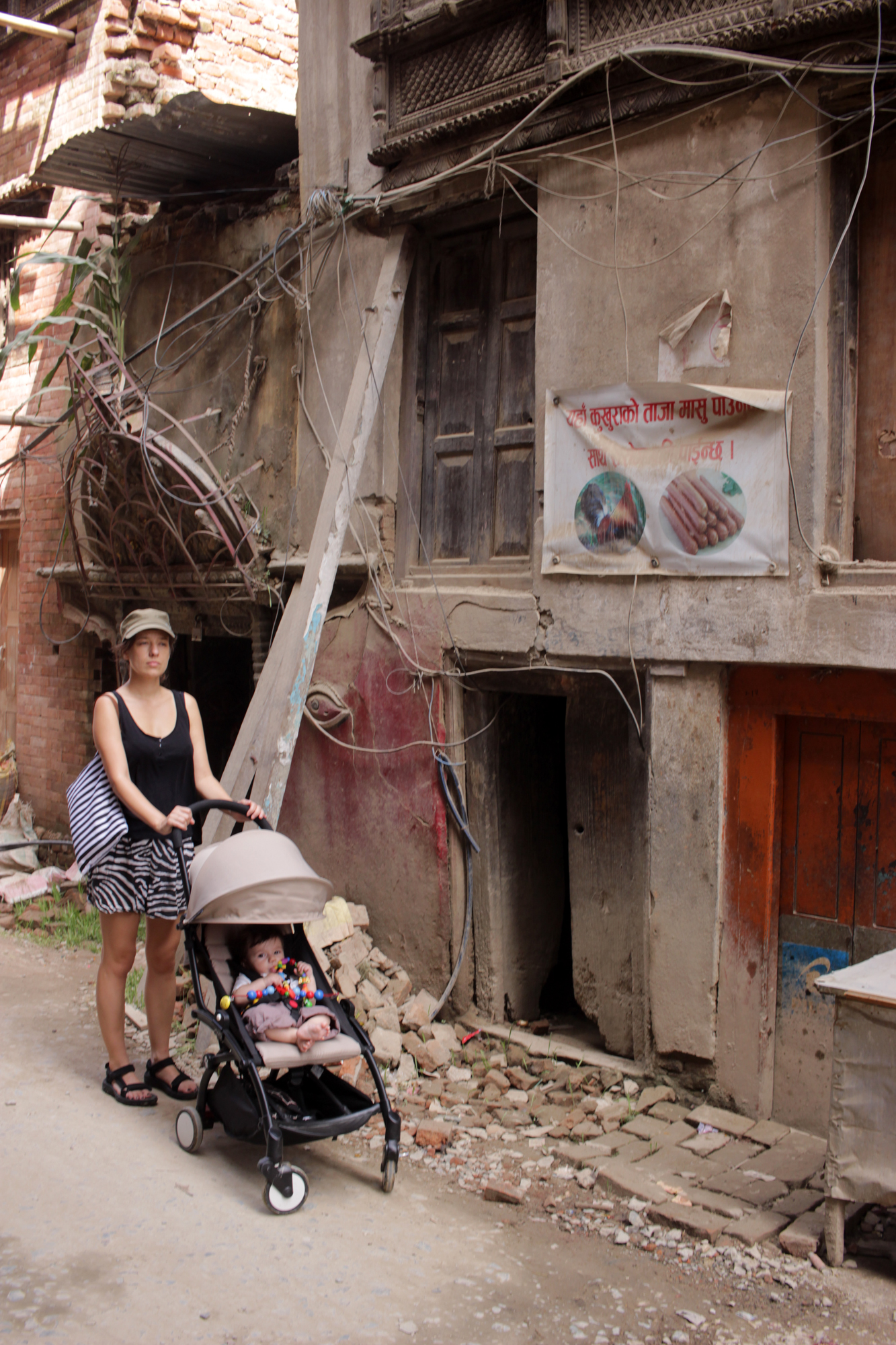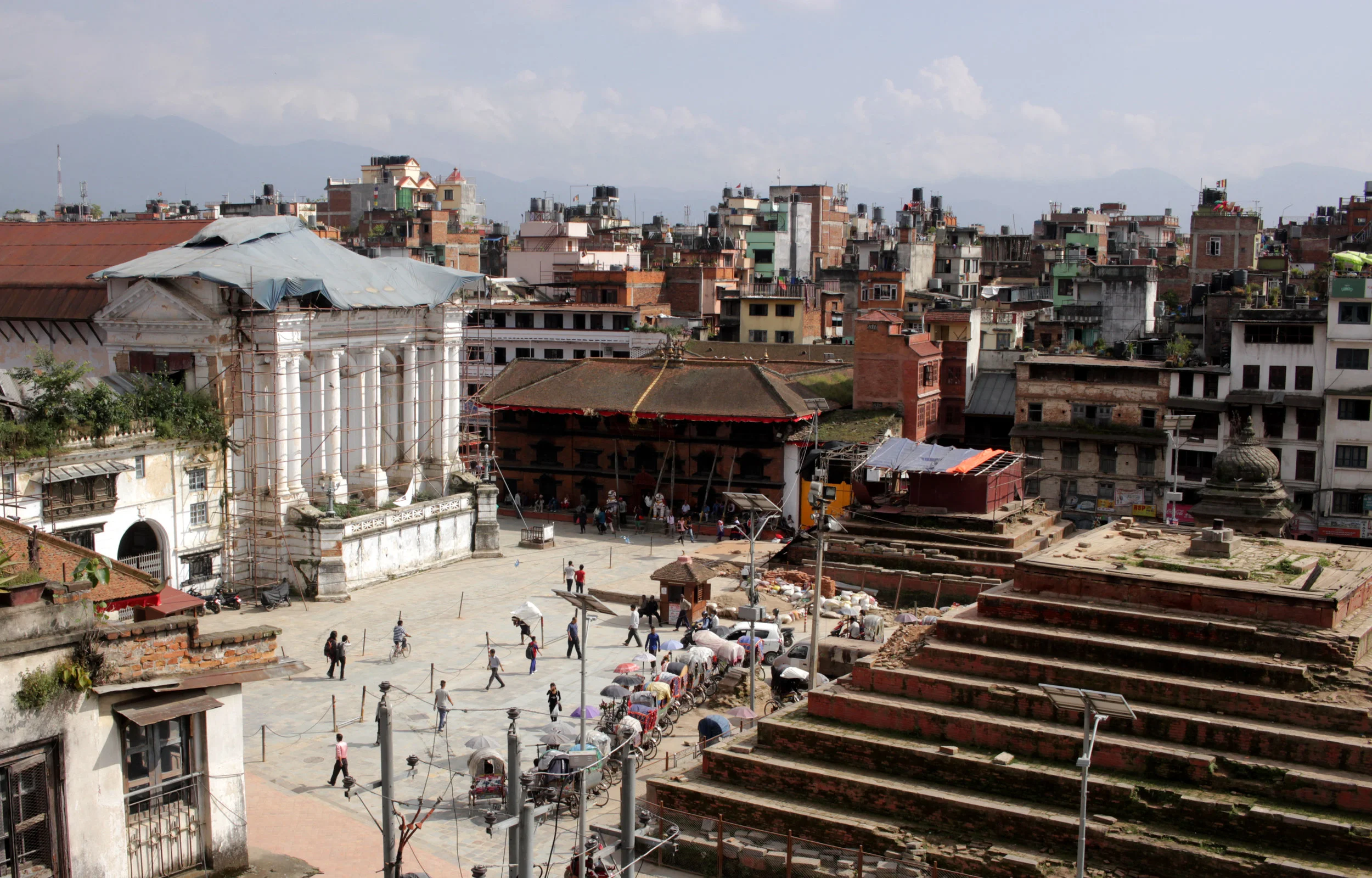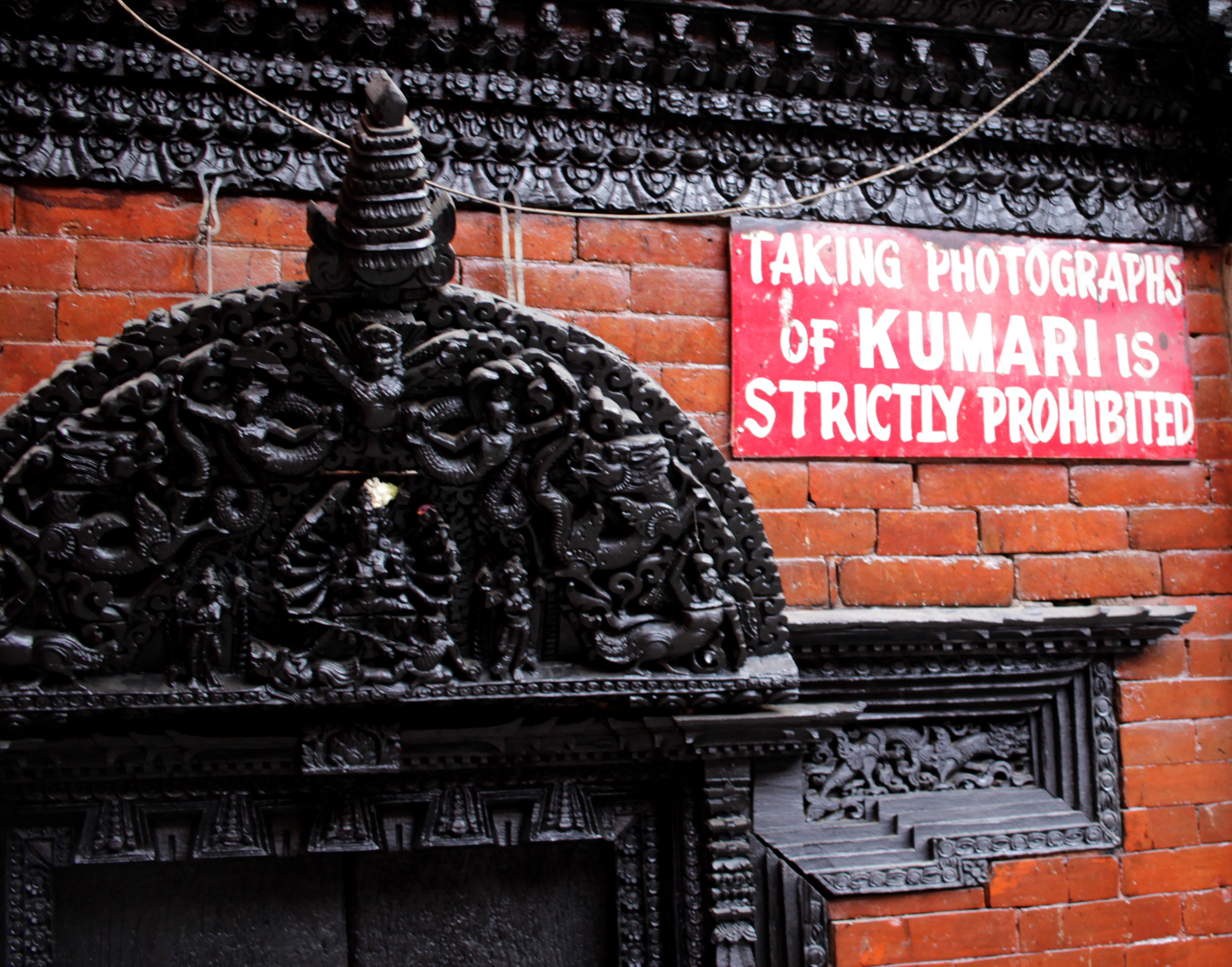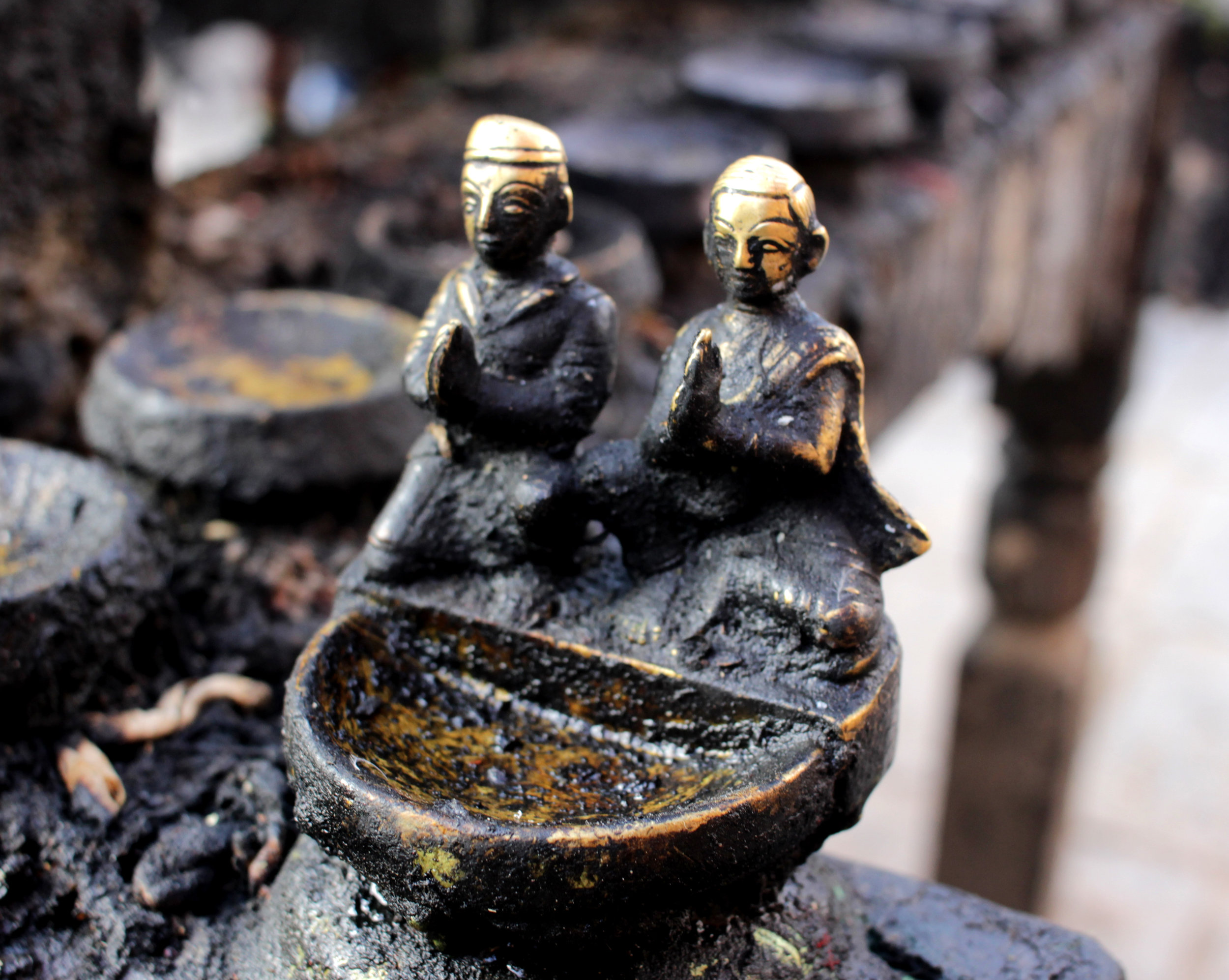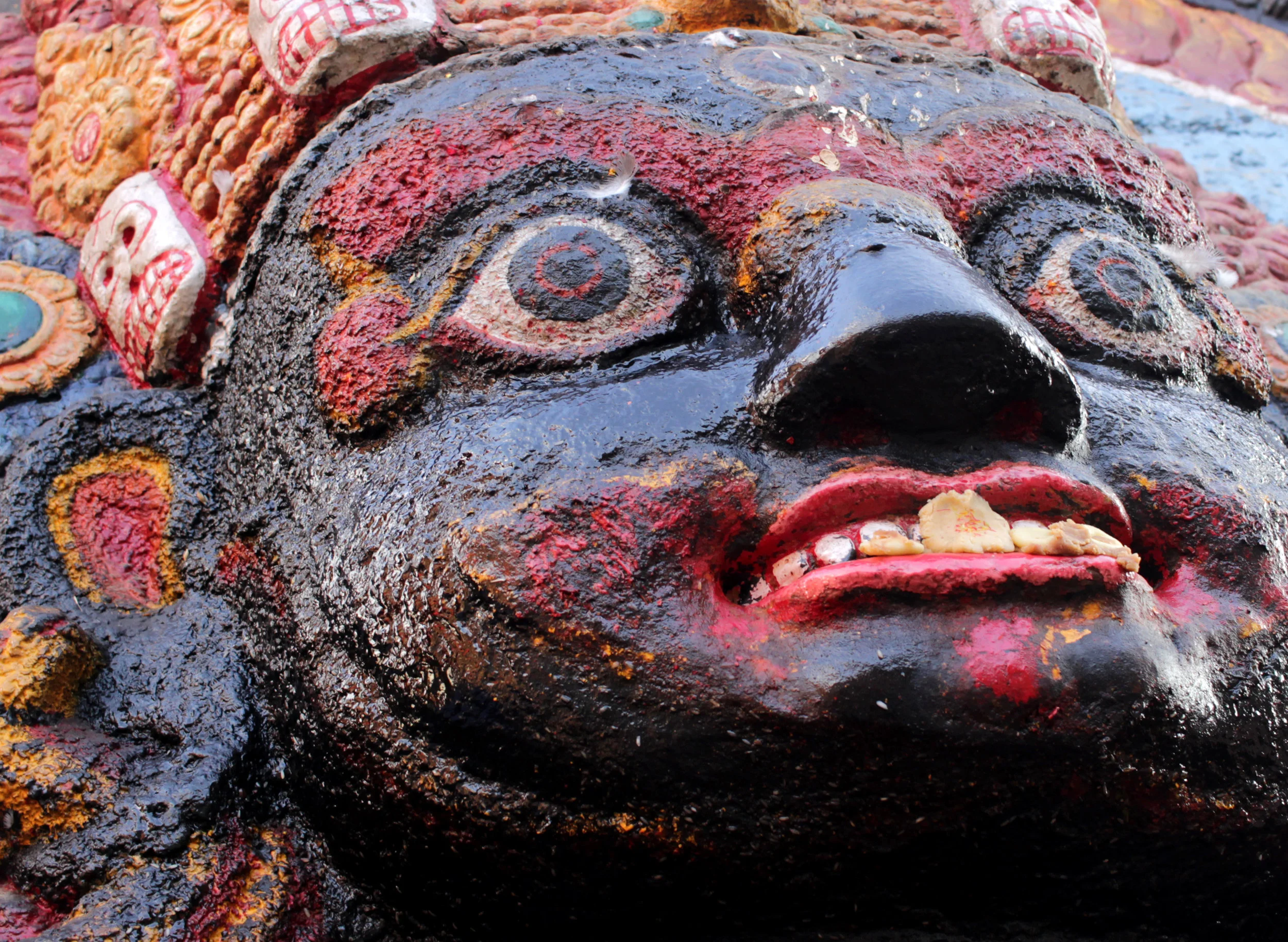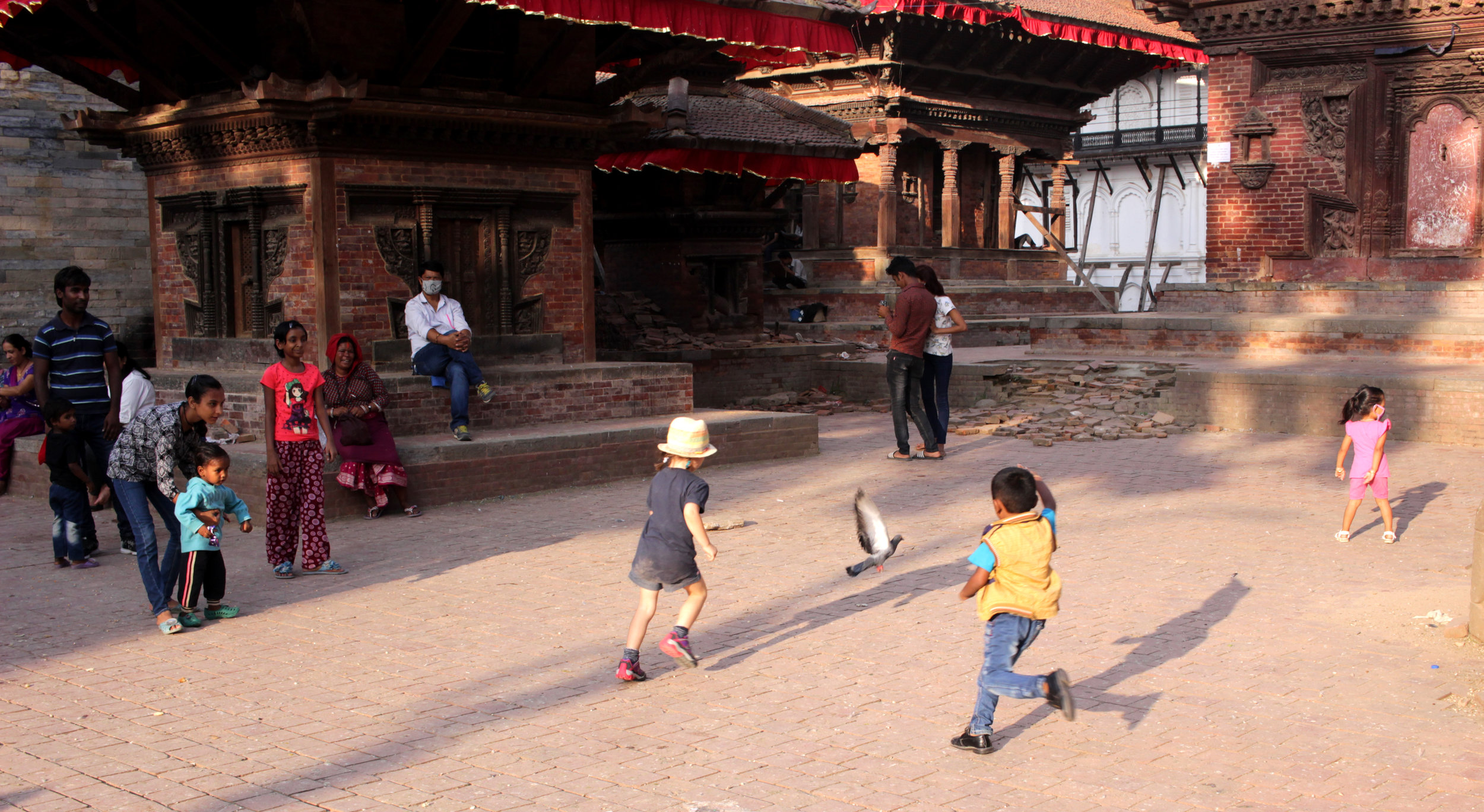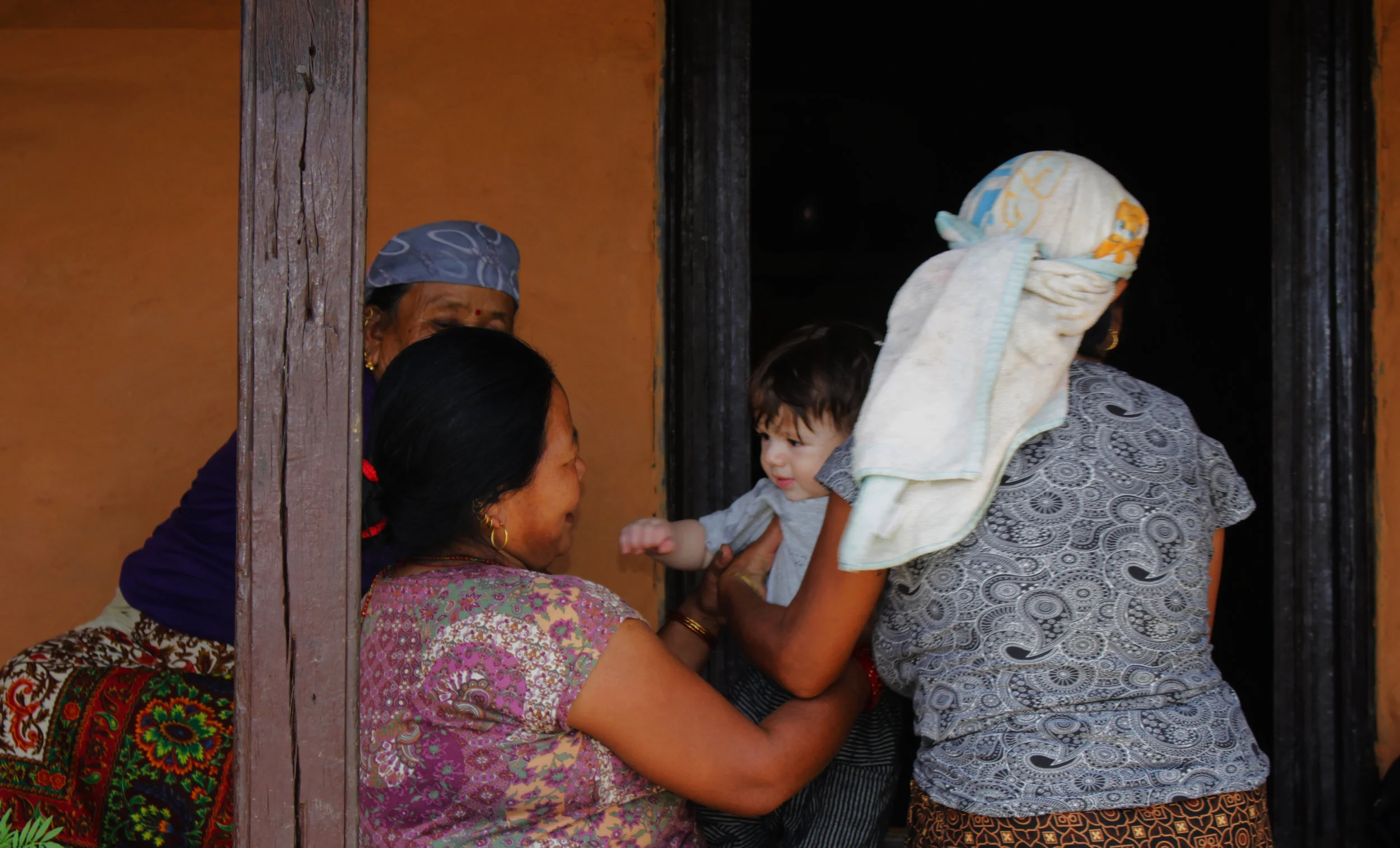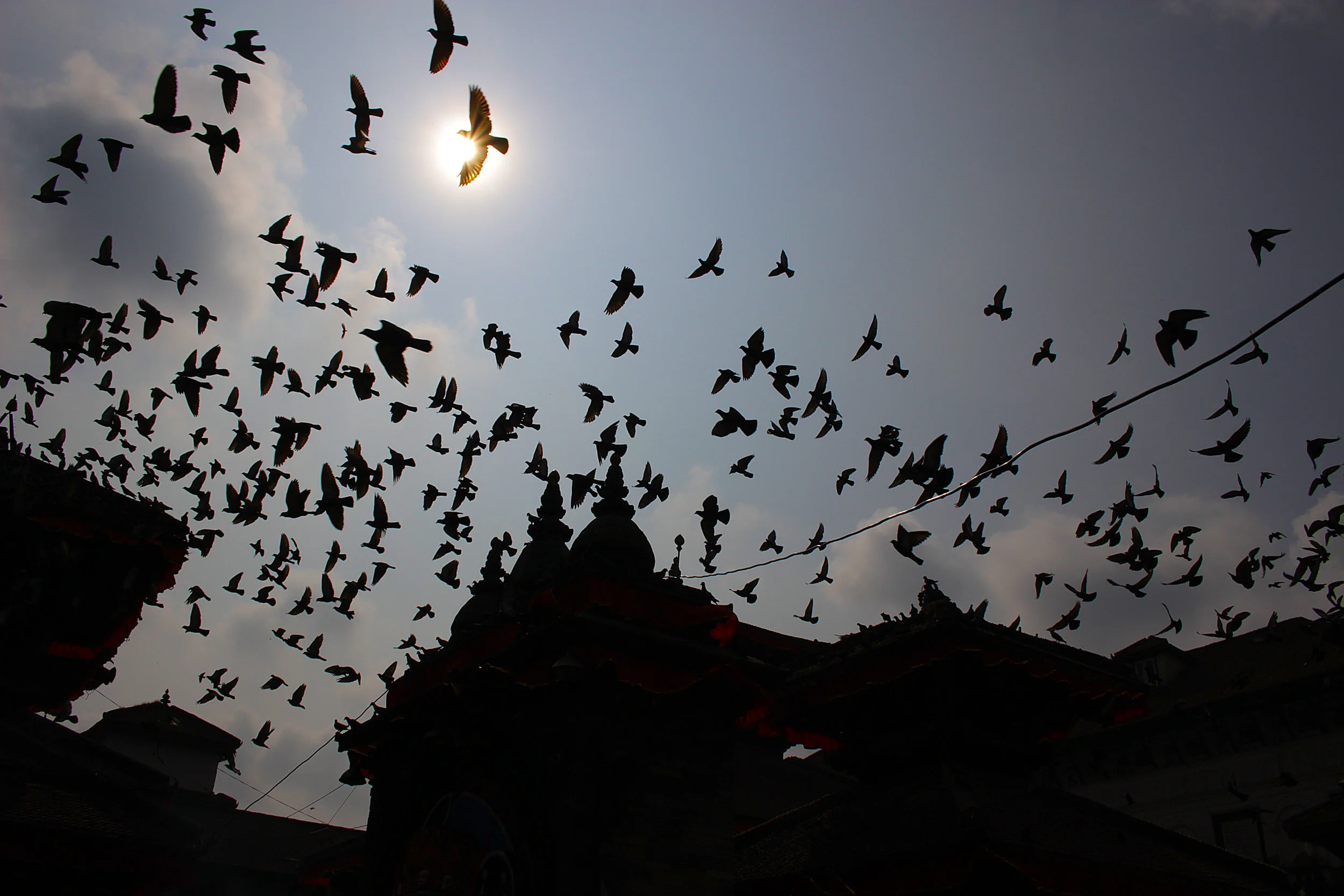Waiting for Goddess

Olivia looks up at the empty window, exhibiting peculiar patience for a four-year-old. She shifts restlessly from foot to foot and gives an occasional singsong ‘ku-maaaaaa-ri’ under her breath. But a real goddess is worth waiting for. So that’s exactly what she does.
We’re in the courtyard of the Kumari Bahal, or the palace of the Kumari Devi, Kathmandu’s living goddess. Lined with heavy black wood carvings and topped with a border of fluttering scarlet curtains, the reverential hush lies in stark contrast to the hassle and hustle of the city. Just the ten-minute walk from our hotel to the temple-studded Durbar Square was an obstacle course of epic proportions and we’re in recovery.
Having made the monumental mistake of attempting the trip with a buggy, we can say with total certainty, DON’T DO IT. ‘Around the corner’ made us think a pavement might be involved for some reason. Instead, it’s a rollercoaster of a dirt track, flanked by the lovechild of a gutter and an open sewer. With every step comes a new chance to get run over by a kamikaze car, moped or rickshaw. And the road there is basically a tunnel of dust blowing directly into River’s face. It’s not great.
Back in the courtyard, however, things couldn’t be more different. People work quietly, professionally, deep in concentration. An old man, his face falling in folds like well-worn leather, hauls a fabric strap onto his forehead and uses it to carry two enormous gas canisters. Grown men swarm around tourists like flies, offering themselves up as guides. A guard sternly lays down the law with “Do not take a photo of the Kumari. We will seize your memory cards.” It’s an entire workforce of adults in adulation of a ten-year-old.
The Kumari Devi is the most important living goddess in Nepal. And unlike a princess, you’re not born into it. A goddess has to earn her title and it’s anything but simple. The Kumari is a girl, chosen from the Newari caste between the ages of four and puberty. She has to have the right star sign. The right tooth shape. The right eye colour. She must never have bled. Once all thirty-two requirements have been met, the potential candidates are put through a process involving buffalo heads, dancing men and a dark room. The girl tough enough to remain calm in the face of this ordeal becomes the Kumari. She moves into the palace, family and all, only emerging a few times a year for ceremonies and festivals.
When she has her first period, she’s done.
A normal person once more. An ex-goddess.
Right now though, this Kumari is ten years old. And though she rarely leaves the building, she does appear in the window daily, for us mortals to pray to or gawp at.
A Nepali man emerges from a door emblazoned with a sign reading ‘no foreigners’. He’s clutching, of all things, a banana. He spots Olivia, hands over the fruit and explains that he got it from the Kumari as a blessing. Olivia doesn’t like bananas. But it’s not every day you get a sacred one, so she smiles shyly and holds onto it.
There are sudden whispers and furtive movements. Everyone stands. She’s coming. The Kumari appears, gliding into the window-frame without a sound. She’s long and slender, clad in bright red embroidered silk, her eyes flicked with heavy kohl on the lower lids. An upside down Amy Winehouse. She looks like a painting.
The goddess is staring into the middle distance, poker-faced, when River blows a raspberry. It’s not the most respectful noise in the presence of a goddess, but what can you do? He’s six months old. The sound grabs her attention and her eyes shift, almost imperceptibly, down to our wriggling baby and then across to Olivia. They look at each other. One little girl to another.
Above the courtyard, the birds fly free.
I can imagine it must be the greatest honour of all for your daughter to be made a goddess. She might love it, of course. The worship and the palace and the perks and the title can’t be bad. But afterwards, in the evening light, I watch Olivia chase pigeons around the temples with the local kids. And I know, without a doubt, which life I’d prefer for her.

